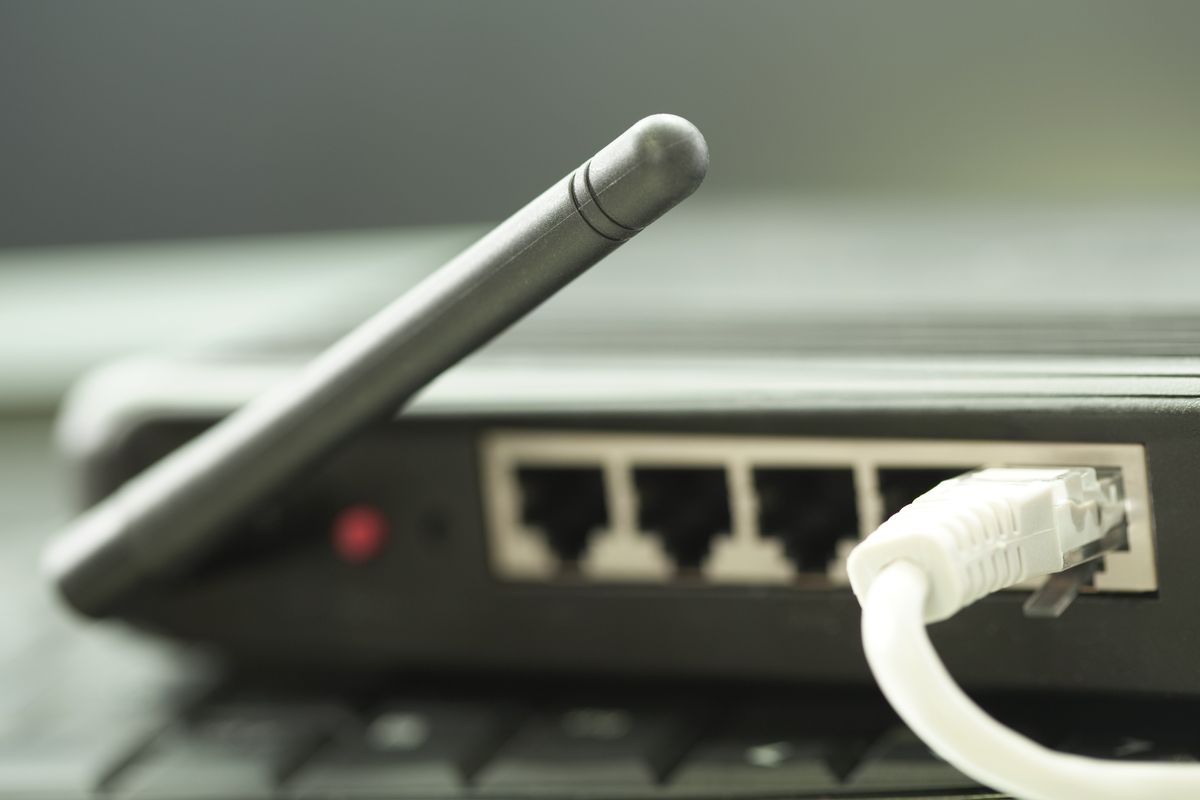8 out of 10 Britons can now access the fastest home broadband speeds — can you upgrade?
Broadband speeds can have a colossal impact on productivity when working from home, enable home upgrades like video doorbells and smart thermostats, and allow friends and family to communicate from anywhere on the planet with video calls
UK Government hails the latest milestone as a "giant leap forward"
- 80% of UK households can now access gigabit-capable broadband
- UK Government has pledged to reach 85% by 2025, then 100% by 2030
- Faster download speeds dramatically improve internet-powered experiences
- It comes as Openreach upgraded 12.5 million homes to gigabit broadband
Don't Miss
Most Read
Trending on GB News
Lightning-fast broadband capable of hitting download speeds of 1,000Mbps is now available in 80% of UK homes, the Government has announced. The milestone comes a few weeks after Openreach confirmed that it had upgraded 12.5 million homes to its latest full-fibre cables.
The average download speed for UK households is just 69.4Mbps, as recorded by Ofcom last year. Gigabit connections offer 14x faster connections, offering buffer-free video calls and streaming, speedy file downloads and back-ups to the cloud, even in the busiest households.
As millions continue to work from home in the UK, and more people now watch TV shows and movies online over traditional terrestrial channels, faster broadband connections are becoming more and more important for Britons.
Research has shown that speedier internet can even boost the value of your home.

If you're willing to pay the price, 80% of UK households can now upgrade to the fastest speeds available — unlocking download speeds of 1,000Mbps or more
GETTY
With the latest announcement, the Government appears to be well on-track to reach its goal of 85% gigabit coverage by 2025 and full coverage across the UK by 2030. The UK has some of the worst average broadband speeds in Europe, triggering a multi-billion pound upgrade project.
Gigabit-capable broadband was available to just 6% of premises in January 2019.
Of course, not every household with a gigabit-capable connection will be enjoying download speeds of 1,000Mbps. Broadband providers typically charge more for faster download speeds, with gigabit broadband costing between £48 per month (Sky Broadband) to £54.99 per month (BT).
That’s over £650 per year to enjoy these faster speeds.
If you’re living in a busy household with multiple people using broadband to stream television, download software updates, back up their photos and devices, make video calls, play video games, and watch YouTube clips – the more bandwidth available, the smoother the experience for everyone.
Smart home devices, such as Wi-Fi-enabled thermostats, video doorbells, and smart speakers all require bandwidth – and can quickly add up.
If you're unsure about what broadband speed you need in your home. We've put together the average download speeds for an hour-long television show episode in Standard Definition (SD), roughly 450MB in size.
- 69Mbps, the average broadband speed in the UK: 56 seconds
- 150Mbps, the lowest speed available with most full-fibre packages: 24 seconds
- 500Mbps, widely available from all full-fibre providers: 7 seconds
- 1Gbps (or 1,000Mbps) is not available from all broadband companies: 4 seconds
Speaking about the latest milestone in the UK’s efforts to bring fast broadband to millions of people across the UK, Technology Secretary Michelle Donelan said: “This is another giant leap forward in our mission to bring gigabit connectivity to every part of the UK, with 80% of the country now able to benefit from lightning-fast broadband.
“Access to gigabit speeds does not just mean being able to seamlessly stream films, TV shows, and shop online all at once. It means better productivity for businesses and new opportunities for local communities with digital infrastructure which will help power our economy, create jobs and improve lives for decades to come.”
LATEST DEVELOPMENTS
BT-owned EE recently launched the fastest UK broadband package with download speeds topping 1.6Gbps. At those speeds, your household internet connection can process requests 23x faster than the average UK household broadband connection.
Openreach is reaching around 60,000 new premises every week and published plans to deliver full-fibre in another 142 locations, covering around 1.4 million homes and businesses, including in some of the hardest-to-reach, most rural communities.
Some of the biggest broadband providers in the UK rely on infrastructure from Openreach, including BT, EE, Sky, TalkTalk, and Plusnet. If you're able to access gigabit-capable broadband from any of these companies, you should be able to maintain those speeds when you switch to another.
But not every broadband brand relies on Openreach. Virgin Media maintains its own dedicated fibre network, which offers download speeds of up to 1,130Mbps to roughly 15 million homes, plus there are a number of other smaller brands building their own infrastructure to connect to customers directly, including Community Fibre, HyperOptic, and G.Network.







